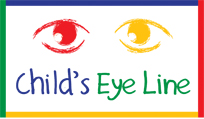Tesco to make displays ‘family friendly’ in victory for Child’s Eye Line UK campaign
November 20th 2014
Child’s Eye Line UK is delighted that Tesco has listened to the concerns of parents and campaigners and adapted its approach to newspaper displays.
Tesco has confirmed that after talking with campaigners and listening to customers the company has reviewed its newspaper displays in its large supermarkets to avoid front pages being displayed at child height. Instead of displaying newspaper front pages in a vertical panel on the side of display cubes Tesco will now only display the names of the newspapers along the sides of newly-designed display units, ensuring that any inappropriate front pages are out of the eye-line of young children.
This new concept will prevent small children from being exposed to unsuitable images when entering their stores while still offering choice for customers who wish to purchase their newspapers from Tesco. Tesco confirmed that all large stores will receive the new display units by the end of November 2014. Tesco has also confirmed it is currently working on improving its displays in its Express Stores and will keep Child’s Eye Line UK updated on progress.
Directors at Tesco thanked campaigners for bringing the matter to their attention. Child’s Eyes UK is grateful to Tesco for engaging openly on this issue and for responding positively to parents’ concerns. This is a significant step forward and a real victory for all Child’s Eye Line UK supporters who are concerned about the sexualisation of children in shops and public places in the UK.
Commenting on the change, Tesco’s Customer Experience and Insight Director, Tracey Clements, said: “As a parent myself, I recognise that newspaper front pages can sometimes have images that are inappropriate for young children. At Tesco, we take our responsibilities as a family friendly retailer very seriously and it’s important that we do everything we can to promote the right environment in store. We’ve listened to campaigners, and we’ve also asked our customers what they think about this issue. The change we’re making to our display panels in our Superstore and Extra formats will strike the right balance for everyone. For our millions of customers, choosing a newspaper will still be simple and easy, but at the same time, any inappropriate front pages will now be of out of the immediate eyesight of young children and toddlers. I’m really grateful to everyone who has campaigned on this issue for raising their concerns and for engaging with us.”’
Child’s Eye Line UK founder Kathy McGuinness said: “We completely support press freedom to publish whatever they like within the law but we also support children’s right not to be exposed to sexualised material when they are just shopping in a supermarket with their parents. It’s great to see Tesco taking its responsibility as the UK’s biggest retailer seriously.”
“We are delighted that Tesco has agreed to take these important steps to make their stores more family-friendly. We have campaigned hard on this issue for two years and it’s great to see Tesco now listening to parents’ concerns. We hope that other supermarkets will follow Tesco’s lead and act responsibly to protect children from sexist and degrading imagery in their stores.”
The government issued guidelines in 2012 that newspapers with sexualised front covers should not be displayed where children can see them following the Bailey Review which found that exposure to sexualised and sexist imagery is damaging to children’s self esteem and relationships and makes risky sexual behaviour more likely.
When Child’s Eye Line UK met with the Minister for Crime Prevention, Norman Baker MP, in July this year he confirmed that supermarkets who display magazines and newspapers with sexualized front covers at child height are “not observing current legislation in relation to the Indecent Displays Act 1981.” Child’s Eye Line UK is campaigning for legislation to regulate the display of sexualised images around children. “Child’s Eye Line UK’s concerns about publications with inappropriate or indecent images or text are fully understood and I believe the problem lies with the retailers, not the publishers,” said Norman Baker MP in a letter to Child’s Eye Line UK following the meeting at the Home Office.
“I am grateful to the work of Child’s Eye Line UK and I am particularly struck by the difficulties and resistance parents have been experiencing when seeking the cooperation of supermarkets who are often not observing current legislation.” Norman Baker MP wrote to the Prime Minister, David Cameron, in his role as Minister on Child’s Eye Line UK behalf and received a “positive reply.” David Cameron referred Norman Baker MP to the Bailey Review into the sexualisation of children, “Letting Children Be Children” (commissioned in 2012), which made a series of recommendations that shops and supermarkets should ‘ensure that magazines and newspapers with sexualised images on their covers are not in easy sight of children. Norman Baker MP said that it is “vital that a robust approach to promoting the self-regulation is in place and that the Indecent Displays Act is able to provide for sufficient protection on matters raised by Child’s Eye Line UK.”
Child’s Eye Line UK has recently received cross-party support at the Scottish Parliament and will have amendments to the forthcoming Licensing Bill tabled by the Shadow Minister for Equalities, Jackie Baillie MSP. Jackie Baillie MSP commented on Tesco’s announcement:
“I am pleased that Tesco has listened to concerns from all shoppers about displaying materials appropriately in their stores in line with the Indecent Displays Act, 1981. The press rightly has the freedom to publish what they wish, thankfully some responsible retailers understand that this freedom should not impact on those shoppers including children who equally have the right to shop in a family friendly environment.”
Notes to Editors:
About Child’s Eye Line UK:
Child’s Eyes UK is a national campaign run by volunteer parents fed up of their children being confronted with sexualized and degrading images in their local shops and supermarkets.
The campaign has cross-party support from MPs and all the leading teaching unions and children’s charities.
A recent government report by the Children’s Commissioner, “Basically Porn is Everywhere” 2013, found that exposure to sexualized images is “damaging to children, negatively affecting their sexual development, relationships and self esteem and makes risky sexual behaviour more likely.” The images and content found in publications like The Sun, The Star, The Sport and lads’ mags were also linked with attitudes that underpin violence against women.
For more details about this story or Child’s Eye Line UK, please contact:
info@childseyeline.org
www.childseyeline.org
Facebook: https://www.facebook.com/ChildEyes
Twitter: @ChildEyesUK







Follow Us!